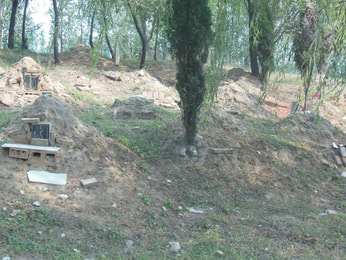
Many people were buried in or under a conical pile of earth, as in the picture above showing graves beside the Xiao Fu river. However, I believe that due to space considerations, most people in China are cremated now.
Back in Confucius time, three years of mourning were observed upon the passing of a parent, which Confucius justified on the grounds that the child receives the most careful attention from his parents for the first three years of life. During that time, the mourner should not enjoy music, good food or costly clothing. Confucius used his three years of mourning for his mother as a time of serious study and he emerged as a philosopher/teacher. His teachings explored the question of how to lead a good and upright life, the duties of a ruler toward his subjects, and how all men should deal with one another. His Analects strike me as rather prosaic and repetitive but no-one can deny their influence. Having spoken rudely about Confucius' buck teeth and his Analects, I should add that he must have been a man of great personal charm and integrity to inspire so much loyalty and love from his disciples, who kept vigil by his grave for years.
According to my guidebook, Confucius died in some obscurity, tired and sorrowful after the death of his son and his favorite disciple, but his reputation must have risen rapidly afterwards, because his family gained great influence and prominence, as well as a very large graveyard-forest. His descendants of have been laid to rest for hundreds of years in this cemetery, which was our third stop on our one day tour of Qufu, the hometown of Confucius.
You can see the soft mounds of older, unmarked grave-sites throughout the forest. Some of the more august deceased had larger monuments and mounds. The cemetery is still receiving occupants to this day.
Sightseers and admirers making the pilgrimage to Confucius' grave-site can walk through the forest or be whisked around the cemetery in a the same kind of open-sided vehicles they use at Universal studios. That's what our group opted for since we'd been walking all day. We drove around and through the spacious woods until we arrived at the entrance to the area containing Confucius' grave.
The cemetery-forest reminded me of The Wood Between the World in the C.S. Lewis book, The Magician and his Nephew. It is a place outside of time that is so peaceful you can forget who you are or where you came from. Sometimes the tides of history have swept over the cemetery walls, as with the Cultural Revolution, but we were glad that our travels had brought us here on a warm spring day. This is certainly a place to ponder mortality, though, if not the hereafter.
*Confucius; Mencius; Faxian (2012-05-17). Chinese Literature Comprising the Analects of Confucius, the Sayings of Mencius, the Shi-King, the Travels of Fâ-Hien, and the Sorrows of Han (Kindle Locations 75-77). . Kindle Edition.
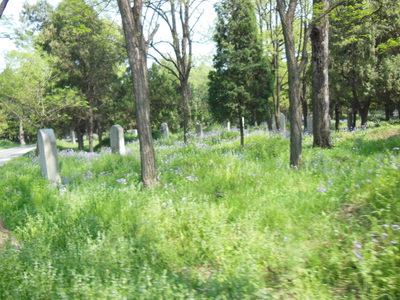
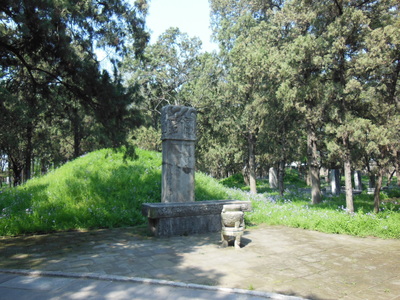
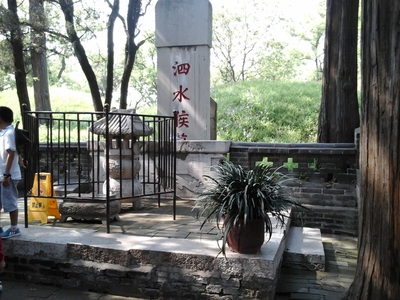
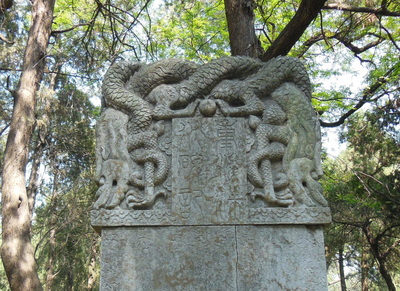
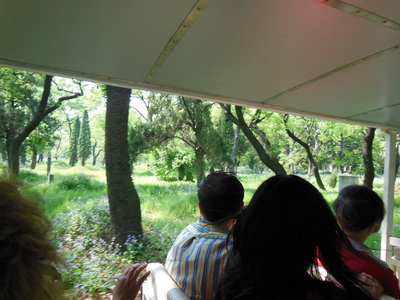
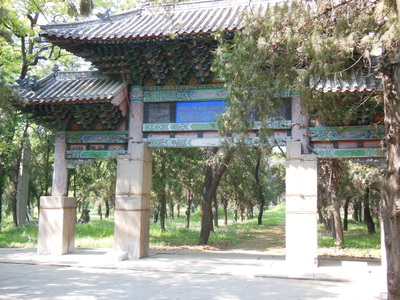
 RSS Feed
RSS Feed